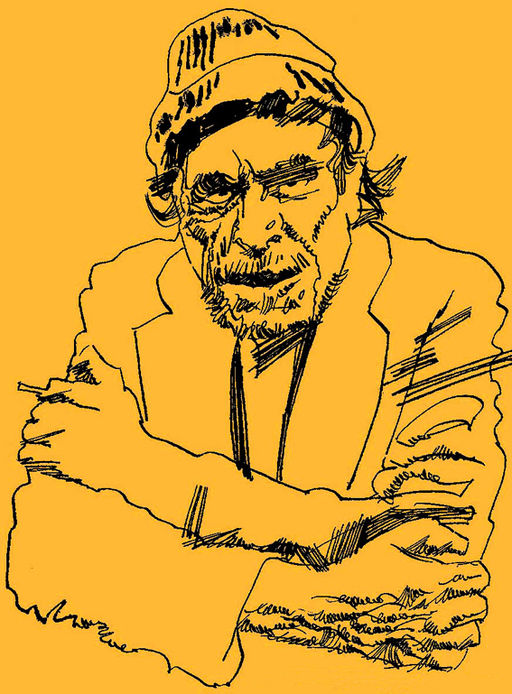Two Poems
this morning I had the most awful time
By Charles Bukowski

Charles Bukowski, portrait, 2008, by Graziano Origa, courtesy Wikimedia Commons.
a model
I have to be like that
man who entered the
restaurant
tonight,
he parked right in
front
blocking a good many
parked cars,
then slammed his car
door,
walked in,
his shirt hanging out
over his big
gut,
and he saw the
maitre d’,
said, “Hey, Frank,
get me a fucking
table by the window!”
and then followed
him
along.
I have to be like
that man.
this way’s not
working.
for over 70 years
now.
the snake
this morning I had the most awful time
excreting.
I pushed and I worked the
what do you call them?—
sphincters—god, I pushed and
grunted,
felt like an utter fool.
but you go on.
it’s like a flat tire on a freeway,
you get out and try to keep
something going,
giving up could lead to
madness.
so
I kept grunting and pushing,
it hurt.
it hurt so badly and I couldn’t
surmise if there were half a
turd hanging there or
nothing.
I continued to grunt and
push.
the edges of the toilet lid
dug into my ass
unmercifully.
a flash of purple shot before my
eyes
it was finally out.
I stood up and looked around.
unbelievable!
magnificent!
indubitably the largest turd of our time,
it curled in a full circle around the
edge of the bowl.
it was unbroken, thick and fat,
perfectly formed,
a giant brown eyeless snake of
decay.
I stared
at that and had the feeling that
I would live
forever.
I wiped and washed, came
back, took a last memorable
look and flushed it
away.
then I was ready for whatever
else
that day would bring
me.


